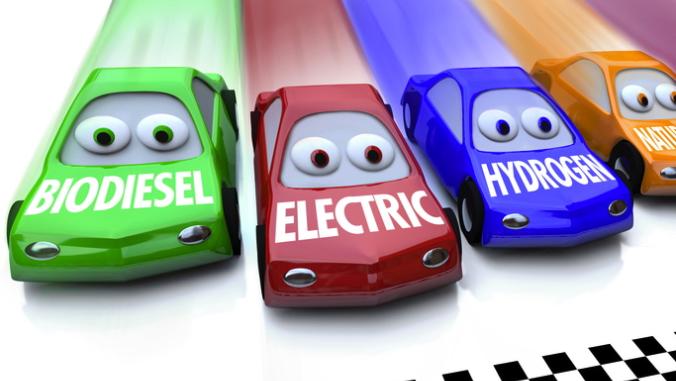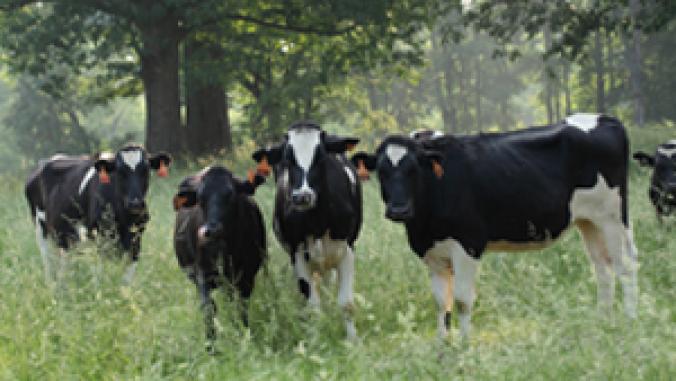Toyota, U.C. Berkeley Come Together to Discuss Transportation, Urban Planning Future
Big names within the urban planning and transportation technology sectors met this week to begin a conversation about how they could create more sustainable cities and vehicles.
Big names within the urban planning and transportation technology sectors met this week to begin a conversation about how they could create more sustainable cities and vehicles.
The Meeting of the Minds Conference brought together public officials, scientists, academics, auto manufacturers and non-profits to discuss fuels of the future, improving transit systems, breakthroughs in urban design, climate change and cutting edge vehicle technology.
It was an intersection of worlds that rarely overlap, said Gordon Feller, the conference's coordinator and CEO of Urban Age Institute, a non-profit that presented the event with the College of Environmental Design at University of California, Berkeley, LandDesign and Toyota.
"One of the common problems is they have no common vocabulary," Feller said, adding that the conference was geared to bridge gaps between the sectors.
It also aimed to foster public and private partnerships by bringing public officials to the table alongside companies. A third branch, the independent sector of academia, non-profits and NGOs, also has a place at the table, Feller said.
Common themes emerged during the two-day event. In the face of a perceived lack of federal leadership, many attendees agreed that a playbook for climate action needed to be ready to implement for the next presidential administration. The need for horizontal learning between cities also is critical. Feller said he received interest in holding similar conferences in other regions, such as Portland and the World Urban Forum.
Speakers included Dr. Steven Chu, Nobel Laureate and director of Lawrence Berkeley National Laboratory, who discussed the facility's efforts in advancing the use of feedstock grasses to produce biofuels that are more sustainable that corn, a crop often touted as a source for making ethanol.
The research lab also is turning to nature to unlock ways of converting grass to biofuel. For instance, scientists are taking a look at termites, which have the microbes needed digest lignocellulosic material. "Man learned to fly by imitating nature," he said.
Bill Reinert, Toyota Motor Sales' national manager of its advanced technology group, discussed sustainable mobility, products and the energy and fuels that power them, the environments in which they operate and the partnerships needed to bring the products to market.
He spoke of the challenges of developing plug-in hybrid electric vehicles (PHEV), and the concerns that the cars may do little to reduce carbon dioxide emissions if they draw electricity from high-carbon sources, such as coal plants.
He also shared the obstacles of packaging PHEVs in ways that retain comfort and space for passengers. "Most consumers are unwilling to accept compromises for the sake of new technology," he said.
The Meeting of the Minds Conference brought together public officials, scientists, academics, auto manufacturers and non-profits to discuss fuels of the future, improving transit systems, breakthroughs in urban design, climate change and cutting edge vehicle technology.
It was an intersection of worlds that rarely overlap, said Gordon Feller, the conference's coordinator and CEO of Urban Age Institute, a non-profit that presented the event with the College of Environmental Design at University of California, Berkeley, LandDesign and Toyota.
"One of the common problems is they have no common vocabulary," Feller said, adding that the conference was geared to bridge gaps between the sectors.
It also aimed to foster public and private partnerships by bringing public officials to the table alongside companies. A third branch, the independent sector of academia, non-profits and NGOs, also has a place at the table, Feller said.
Common themes emerged during the two-day event. In the face of a perceived lack of federal leadership, many attendees agreed that a playbook for climate action needed to be ready to implement for the next presidential administration. The need for horizontal learning between cities also is critical. Feller said he received interest in holding similar conferences in other regions, such as Portland and the World Urban Forum.
Speakers included Dr. Steven Chu, Nobel Laureate and director of Lawrence Berkeley National Laboratory, who discussed the facility's efforts in advancing the use of feedstock grasses to produce biofuels that are more sustainable that corn, a crop often touted as a source for making ethanol.
The research lab also is turning to nature to unlock ways of converting grass to biofuel. For instance, scientists are taking a look at termites, which have the microbes needed digest lignocellulosic material. "Man learned to fly by imitating nature," he said.
Bill Reinert, Toyota Motor Sales' national manager of its advanced technology group, discussed sustainable mobility, products and the energy and fuels that power them, the environments in which they operate and the partnerships needed to bring the products to market.
He spoke of the challenges of developing plug-in hybrid electric vehicles (PHEV), and the concerns that the cars may do little to reduce carbon dioxide emissions if they draw electricity from high-carbon sources, such as coal plants.
He also shared the obstacles of packaging PHEVs in ways that retain comfort and space for passengers. "Most consumers are unwilling to accept compromises for the sake of new technology," he said.





